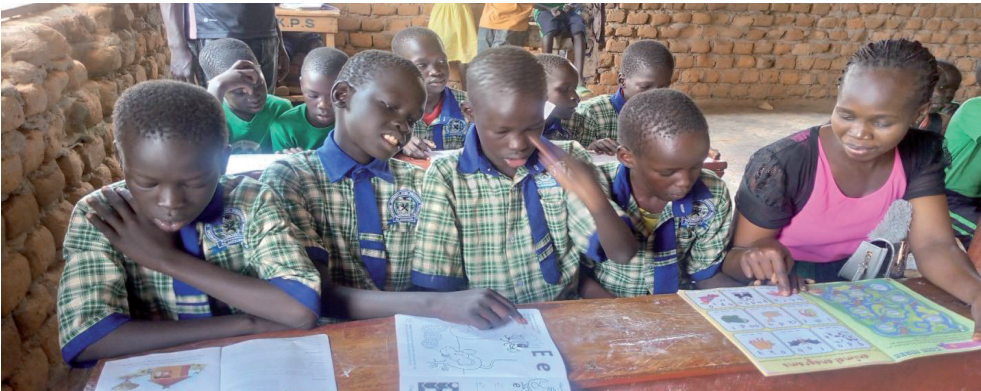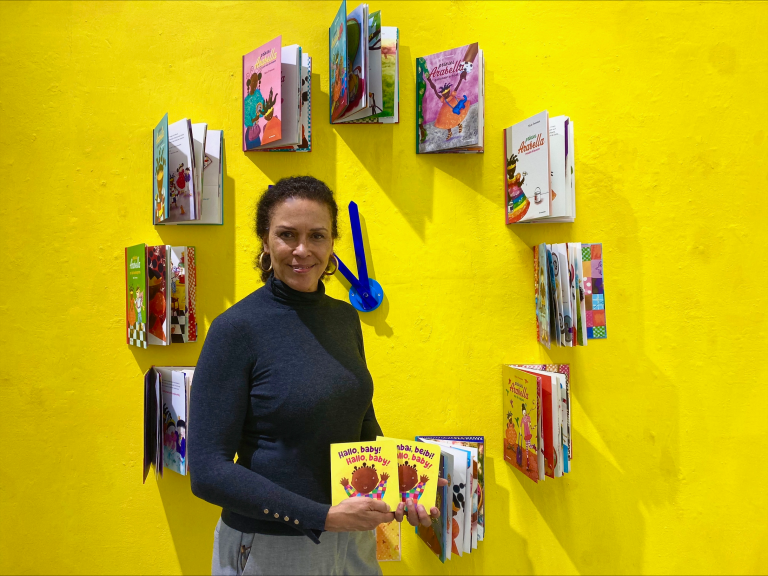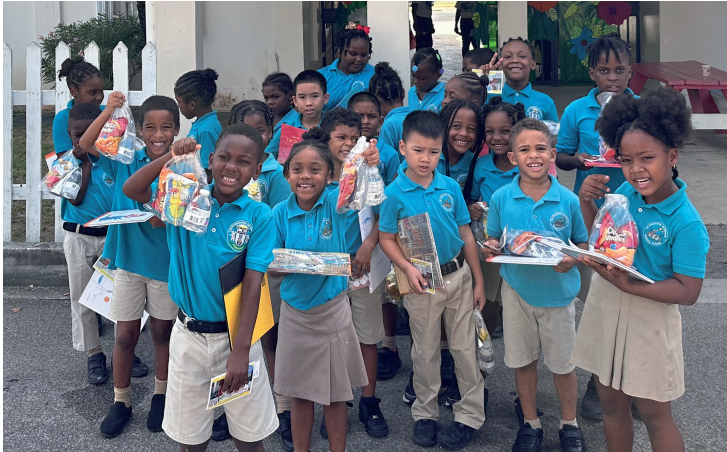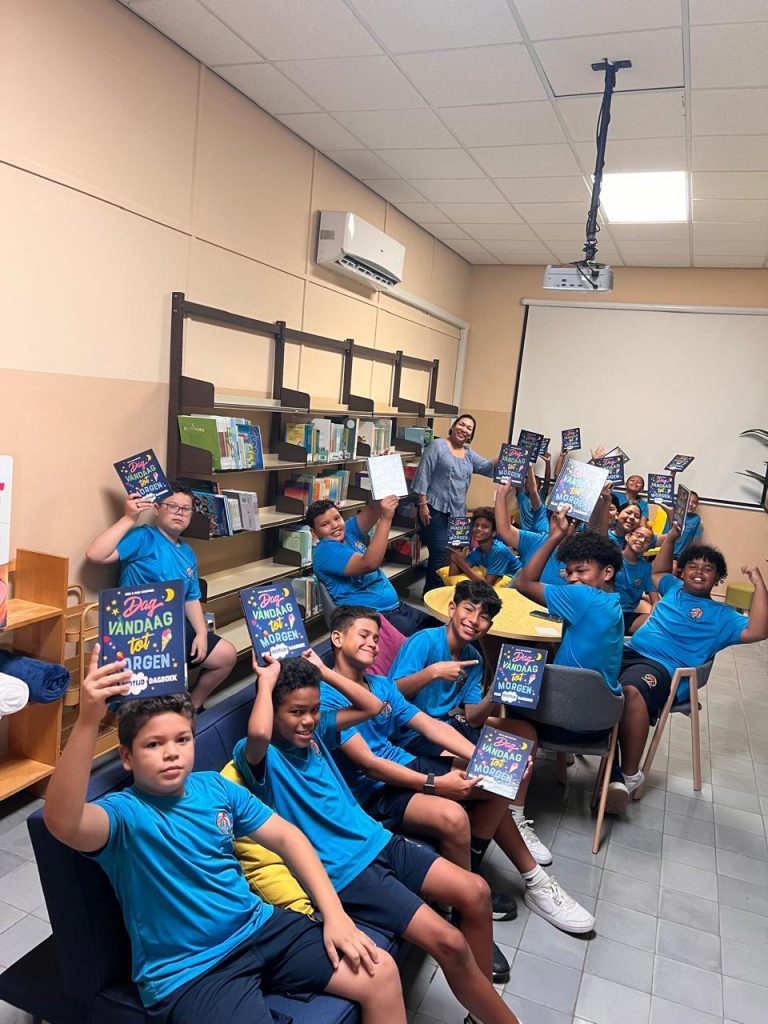Education in Uganda: an Interview with Florence Andrews of STAD

In the heart of northern Uganda, where education faces enormous challenges, a determined effort is underway to transform education. Koboko district is a place of contrasts: it is brimming with cultural diversity but burdened with a shortage of resources for schools and the pressures of hosting refugees.
Florence Andrews, STAD (Support Trust for Africa Development) board member, is working with Biblionef to address these challenges by combining innovative methods and the allocation of basic resources.
The education system in Koboko faces significant hurdles. The district has more than 160 schools, including government, private and community institutions. Despite this, classrooms are often overcrowded. ‘Some have more than 150 students,’ says Florence, which is far above the ideal ratio of 1:40. There is a dire shortage of learning materials, especially essential resources such as picture books and storybooks are missing.
Florence speaks passionately about these challenges. ‘Illiteracy is a big problem,’ she says. ‘Many children cannot read or write because they do not have learning resources. Teachers are also overburdened and inadequately supported, which greatly affects the quality of education they can provide.’ Despite these challenges, Florence sees a way forward through collaboration, innovative methods and unwavering commitment.
A driving force behind these steps forward is STAD’s collaboration with Biblionef, which began in 2021 with an introduction by Marrie den Breems. Together, they have set out to address the root causes of low literacy in Koboko. The focus is on empowering teachers and supporting vulnerable children. Florence highlights Biblionef’s holistic approach: ‘They don’t just provide books, but actively work with us to ensure that these resources are used effectively, from teacher training to classroom implementation. Their involvement has really made a difference.’
Together, the two organisations have identified Jolly Phonics as a powerful tool to address the challenge of education in Koboko. Jolly Phonics offers a multisensory approach to teaching reading and writing. It provides teachers with strategies to teach students sounds, blending techniques and word-building skills in a fun way. This approach is particularly effective in regions like Koboko, where linguistic diversity and limited resources can make teaching literacy a daunting task.
For Florence, the impact of the programme is undeniable. ‘Jolly Phonics is transformative,’ she says. ‘It helps teachers bring all students to the same reading and writing level, regardless of their background. In classrooms where resources are limited and challenges are great, this method has proven to be effective.’
Teachers report greater engagement from students, many of whom now enjoy coming to school and actively participating in lessons. The interactive nature of Jolly Phonics, which incorporates actions and sounds into lessons, has made learning not only more effective but also more fun for young learners.
This transformation is about more than academic success; it is about giving children the tools they need to develop.
‘Literacy,’ Florence explains, ’is the basis for opening doors to opportunities that many in Koboko previously considered unattainable. When a child learns how to read, that child gains self-confidence. They begin to dream of a future where they can achieve more.’
Florence is optimistic about the future. She envisions an education system in Koboko where every child has access to good learning resources, skilled teachers, and a chance to be successful. ‘Our partnership with Biblionef has changed a lot,’ she says, ‘it has brought hope not only to classrooms but to entire communities.’
Through the tireless efforts of STAD and partners like Biblionef, hope is taking root in Koboko, classroom by classroom. Together, they are not only changing the story of education in northern Uganda, but also building the legacy of empowerment and opportunity.
Written by Silas van Gorkum



